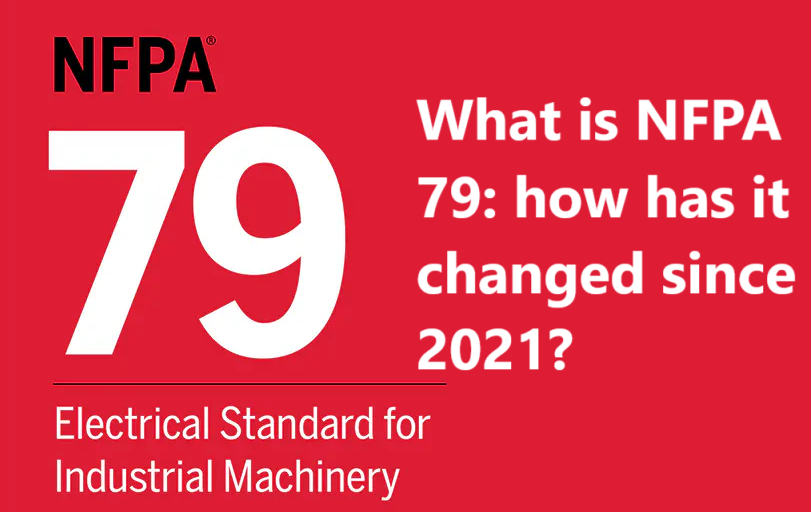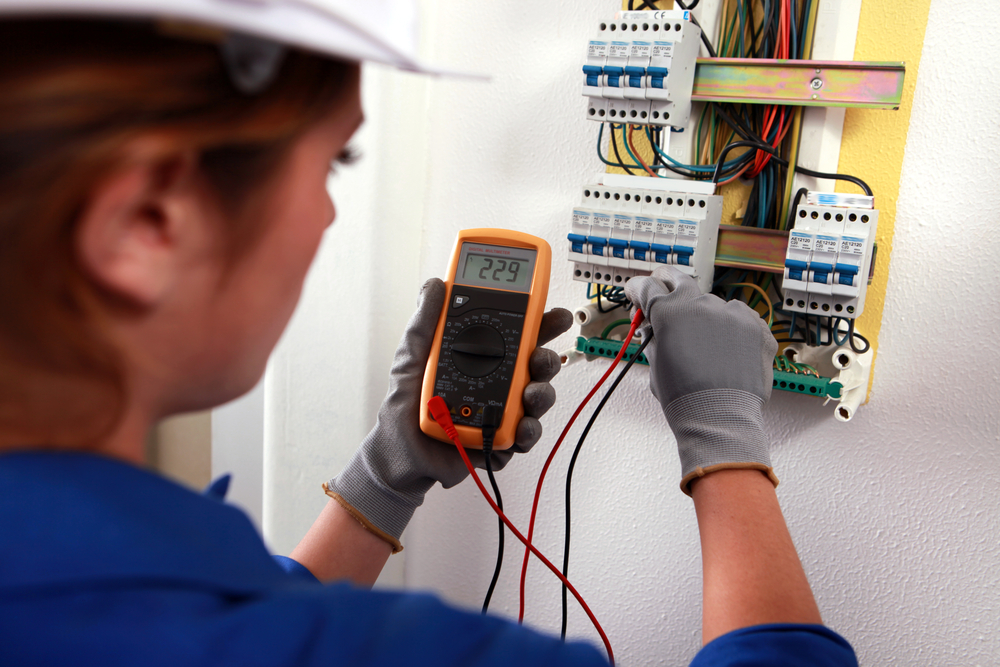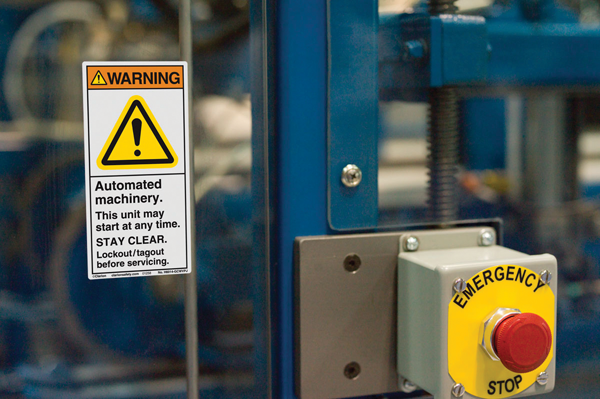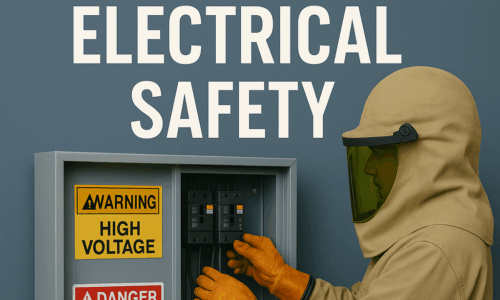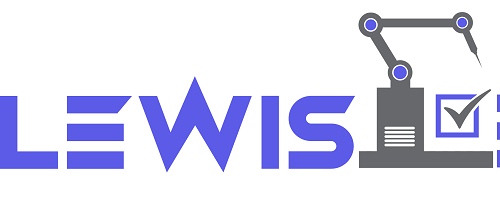What is the NFPA 79 standard and how has it changed over time?
When it comes to industrial machinery, NFPA 79 compliance is not just a priority—it’s a necessity.
Ensuring that your equipment is up to par with the latest safety standards can be a daunting task, especially when the standards you count on for compliance are continuously evolving and changing over time. One such critical standard in the industrial world is NFPA 79, which plays a major role in keeping your company’s manufacturing operations safe and compliant with local AHJs.
So, what exactly is NFPA 79? Why should you care about it? And how does it impact your industrial machinery? Still reading? Well, these questions and more are succinctly answered in this week’s Lewis Bass blog post! Read on to find out.
NFPA 79, also known as the Electrical Standard for Industrial Machinery, is a standard developed by the National Fire Protection Association (NFPA).
It provides guidelines for the electrical systems of industrial machinery to ensure safety from electrical hazards. These guidelines cover everything from design and installation to maintenance and operation, ensuring that every aspect of your machinery’s electrical systems is safe and reliable.
This standard is not just a recommendation—it’s a requirement for anyone involved in the design, installation, and operation of industrial machinery. Whether you’re a manufacturer, a facility manager, or an engineer, understanding and complying with NFPA 79 is essential to maintaining a safe working environment.
The Importance of Compliance
Compliance with NFPA 79 is not just about meeting a legal requirement; it’s about protecting your people, your equipment, and your business. Electrical hazards are one of the leading causes of industrial accidents, and these can result in serious injuries, costly damages, and even loss of life. By adhering to NFPA 79 standards, you’re taking proactive steps to mitigate these risks.
Moreover, compliance can have financial benefits as well. Avoiding accidents means avoiding costly downtime, repairs, and potential lawsuits. Additionally, equipment that meets NFPA 79 standards is often seen as more reliable and trustworthy, which can enhance your reputation in the industry and provide a competitive edge.
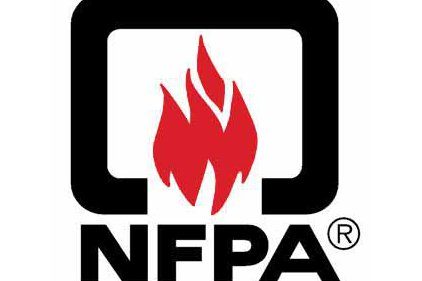
What are the Key Elements of NFPA 79?
Now that we’ve established why NFPA 79 is so important, let’s take a closer look at some of its key elements. The standard covers a wide range of topics, but here are some of the most critical areas:
- Electrical System Design: NFPA 79 provides detailed guidelines on the design of electrical systems for industrial machinery. This includes everything from the selection of components to the layout of wiring and the integration of control systems. The goal is to ensure that the electrical systems are both safe and efficient.
- Wiring Methods: The standard outlines the approved methods for wiring industrial machinery, including the types of cables that can be used, how they should be installed, and how they should be protected. Proper wiring is essential to prevent electrical fires, short circuits, and other hazards.
- Protection Against Electrical Hazards: NFPA 79 includes requirements for protecting workers and equipment from electrical hazards. This includes guidelines for grounding and bonding, overcurrent protection, and emergency stop systems. By following these guidelines, you can reduce the risk of electrical shocks, fires, and other dangerous situations.
- Control Systems: The standard also covers the design and installation of control systems for industrial machinery. This includes everything from simple on/off switches to complex programmable logic controllers (PLCs). Properly designed control systems can help ensure that machinery operates safely and efficiently.
- Maintenance and Inspection: NFPA 79 doesn’t just apply to the design and installation of machinery; it also includes guidelines for ongoing maintenance and inspection. Regular inspections and maintenance are essential to ensure that machinery remains in compliance with the standard and continues to operate safely.
Sooo, What’s New in NFPA 79 2024 vs. 2021?
As with any safety standard, NFPA 79 evolves over time to address new challenges, incorporate technological advancements, and improve overall safety. The 2024 edition of NFPA 79 introduces several important updates and changes from the 2021 edition. Understanding these changes is crucial to maintaining compliance and ensuring the safety of your industrial machinery.
- Revised Definitions and Scope: The 2024 edition includes updated definitions and scope clarifications that impact how the standard is applied to different types of machinery. This ensures that the standard remains relevant as new types of equipment and technologies emerge in the industrial sector.
- Enhanced Cybersecurity Requirements: With the increasing integration of digital controls and networked systems in industrial machinery, the 2024 edition places a greater emphasis on cybersecurity. This includes guidelines for securing control systems against cyber threats, which are becoming a significant concern in the industrial sector.
- Updates to Wiring Methods: The 2024 update includes revisions to the acceptable wiring methods, including new requirements for cable protection and installation practices. These changes are aimed at reducing the risk of electrical fires and improving the overall safety of wiring systems in industrial machinery.
- Increased Focus on Functional Safety: Functional safety, which involves ensuring that machinery can safely detect and respond to faults, is more prominently featured in the 2024 edition. This includes updated requirements for safety-related control systems and the integration of safety functions into the overall machinery design.
- Adjustments in Grounding and Bonding Requirements: The 2024 edition revises some of the grounding and bonding requirements to improve clarity and ensure that these critical safety measures are implemented consistently. Proper grounding and bonding are essential to preventing electrical shocks and ensuring system stability.
- More Stringent Maintenance and Inspection Guidelines: The new edition also places a stronger emphasis on the importance of regular maintenance and inspection. It introduces more detailed guidelines for periodic checks, helping to ensure that machinery remains compliant and safe throughout its operational life.
Staying Compliant with NFPA 79 Currently and in the Future
So, how can you ensure that your machinery complies with NFPA 79? The first step is to familiarize yourself with the standard. This means not just understanding the guidelines but also knowing how they apply to your specific equipment and operations.
Regular training and education are also crucial. Your team should be well-versed in NFPA 79 requirements and understand the importance of compliance. Consider investing in training programs or bringing in experts to help your team stay up-to-date with the latest standards.
It’s also important to conduct regular inspections and maintenance. Even the best-designed machinery can fall out of compliance over time if it’s not properly maintained. Regular inspections can help you identify and address potential issues before they become serious problems.
Finally, don’t be afraid to seek outside help if needed. If you’re unsure whether your machinery complies with NFPA 79, consider bringing in a third-party inspector or consultant. These experts can provide valuable insights and help you identify areas where improvements are needed.

Do you have a need for our services?
Lewis Bass can help your team identify the most common safety issues in your facility, along with providing immediate referrals to our trusted partners to address them on your behalf.
Not sure what service you need from us?
Take our service identifier quiz here.
Are you uncertain if your equipment is unlisted or not at your facility?
Lewis Bass has you covered here as well: download our unlisted equipment self-identification flyer here.
Do you have a need for an urgent machinery evaluation?
Please reach out to us using our contact form here or call/text us directly on our office line 408-942-8000. We are always available to help with rush jobs and permit-blocking safety situations at your facility.
